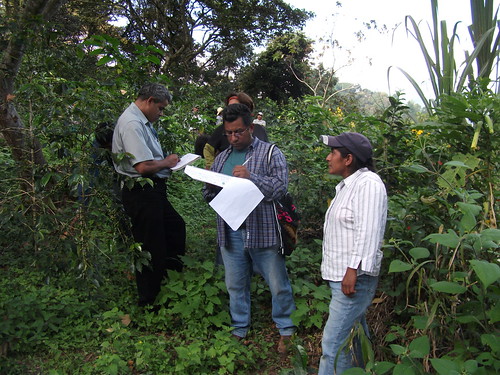
On behalf of the Agricultural Marketing Service’s National Organic Program (NOP), please join us as we continue celebrating National Hispanic Heritage Month. The month-long observance, that occurs every year from September 15 through October 15, celebrates the cultures and traditions of Americans who trace their roots to Spain, Mexico, and the Spanish-speaking nations of Central America, South America and the Caribbean. At the NOP, increasing our appreciation of Hispanic cultures as well as our connections with Hispanic people are essential for our success.
There is much that we have done and continue to do in serving Hispanic stakeholders. The USDA organic regulations, as well as the National Organic Program Handbook – which contain USDA organic standards, guidance documents, policy memos and instructions – are available in Spanish. In addition, our recent Sound and Sensible initiative resources, which are helping make organic certification more accessible, attainable and affordable for small producers and processors, also include resources in Spanish.
According to the U.S. Census Bureau, today there are more than 56.6 million Hispanics in the United States. People of Hispanic origin or descent represent 17.6 percent of the total U.S. population and are the largest and one of the fastest growing ethnic or racial minority groups. In addition, according to Selig Center for Economic Growth, the purchasing power of the U.S. Hispanic population is estimated at approximately $1.3 trillion, an amount larger than the Gross Domestic Product (GDP) of Mexico, our country’s third largest trading partner.
Given the size and growth of the U.S. Hispanic population and its purchasing power, the Hispanic community is a key driver of the growth of U.S. consumer markets, including our organic market. According to the 2015 U.S. Families’ Organic Attitudes & Beliefs Study by the Organic Trade Association, as the U.S. organic market continues to grow, there has been an increase in the diversity of families purchasing organic products, which is beginning to align with ethnic and racial data from the U.S. Census Bureau.
NOP stakeholders also include certified organic operations, both in the U.S. and abroad. According to the 2012 Census of Agriculture, the number of Hispanic farmers in the U.S. increased by 21 percent between 2007 and 2012. In California, the state with the largest number of certified organic operations, the share of farmers of Hispanic origin is 12 percent, four times higher than the U.S. average of 3 percent. Abroad, according to the Organic INTEGRITY Database, there are over 31,700 certified organic operations certified to USDA organic standards. Although slightly more than 70 percent of these operations are in the U.S., approximately 30 percent or about 9,300 of them are in over 120 foreign countries. Of those in foreign countries, almost 60 percent are in Spain, Mexico, and the Spanish-speaking nations of Central America, South America and the Caribbean.
Strengthening our connections with Hispanic stakeholders aboard, we are working with Mexico on a bilateral organic equivalency arrangement, and hope to add Mexico to our list of International Trade partners. In addition, we are working with the Inter-American Institute for Cooperation on Agriculture (IICA) and its Inter-American Commission for Organic Agriculture on developing the organic sector in Latin America.
So, celebrating National Hispanic Heritage Month is a celebration not only of the diverse cultures and people that make up the U.S. but also a celebration of our domestic and international customers. And, as we succeed in honoring and serving our customers, our program succeeds.
